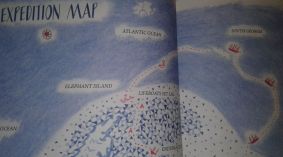
ON A COLD WINTER’S NIGHT, not too many weeks ago, I was enjoying a sauna with my eight-year-old daughter Anna when she turned to me and asked me a question.
“Daddy, who was president when I was born?”
“Toomas Hendrik Ilves,” I answered. “And he’s still the president of Estonia believe it or not.”
The inquisitive child thought for a while and then asked me another. “But who was president when you were born?”
“Jimmy Carter,” I said.
“But who was the president of Estonia when Mommy was born?”
Now we had entered more complicated territory. “Estonia had no president when your mother was born,” I answered. “It was part of the Soviet Union, and the leader at that time was named Leonid Brezhnev.”
“What?!” She cocked a very bewildered eyebrow at me. “Leonid Blahblah?! But that sounds like, that sounds like, well, like … like some kind of Russian name!”
“He was Russian, I think.”
“How the heck could Leonid Blahblah be president of Estonia? That doesn’t make any sense!”
It’s a very curious trend I have noticed about my daughter’s generation of Estonians. They cannot conceive of an Estonia that was not free. And not only that, they cannot conceive of an Estonia that was led by anyone with a vaguely Russian-sounding name. Just the fact that the Soviet premier’s name in the 1970s was Leonid Brezhnev, or “Blahblah” as she called him, troubled her because it sounded so foreign and suspicious. Of course, her name is Petrone, but with all these books going around with the name Petrone on it, this southern Italian patronym has since been co-opted into the Estonian mainstream, like Keränen or Šmigun.
The foreign policy of the current Russian Federation has not helped matters for little girls like Anna. I do not preach at home, in fact, current affairs are rarely discussed, but that hasn’t stopped her fellow little people from gathering outside the doors of the school to whisper among each other about their nation’s enemies. Russia is treated at best with a cautious disdain. Once, after I went to Moscow, an Estonian boy told me that I had been crazy. “Don’t you know — they kill Estonians there!” Estonian Russian classmates are treated with a mixture of camaraderie and pity. “Sure, he’s a Russian …. but he’s super, super friendly!”
All of this comes to a head on Independence Day, when even girls her age must make acquaintance with their country’s history of foreign subjugation to Russia. Because it was Russia that Estonia gained its independence from in 1918. It was the crumbling Russian Empire and its rising Bolshevik successor against which the new Estonian republic was idealized. And in spite of the fact that it was Lenin who first recognized Estonian statehood, or that these empires had multicultural leaderships that included Germans, Poles, Ukrainians, Georgians, and, yes, even Estonians, these birth pains of separation from Russia continue to haunt Estonians to this day.
Even those were born when Toomas Hendrik Ilves was president.
“But who was the real leader of Estonia when Mommy was born?” my daughter asked me again.
“Well, a powerful man in Estonia at that time was the head of the Estonian Communist Party,” I said. “And his name was Johannes Käbin.”
“Ah, Johannes.” She paused to let the name sink in. “Johannes Käbi* was the leader of Estonia. Normaalne.”
-
“Käbi” is the Estonian word for pine cone.

 THE SCANDINAVIAN MODEL, as it is known, is the metric by which the American left measures its own inferiority, juxtaposed against nationalist claims of leading in perpetuity the free world. Hence, the deep crisis and cracks in the American psyche — the greatest nation in the world isn’t so great after all.
THE SCANDINAVIAN MODEL, as it is known, is the metric by which the American left measures its own inferiority, juxtaposed against nationalist claims of leading in perpetuity the free world. Hence, the deep crisis and cracks in the American psyche — the greatest nation in the world isn’t so great after all.












